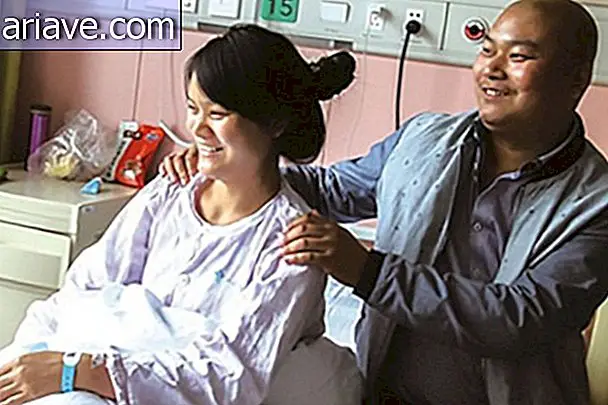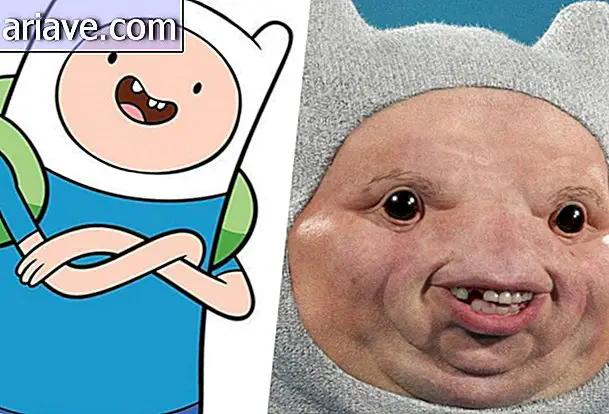Myths and Truths about Dental Diagnosis
There is a good chance that you are part of the class that is terrified of going to the dentist. And no less! After all, between drills, pliers, needles and other instruments, it is difficult not to compare the offices of these professionals with real torture rooms, right?
However - and despite the suffering - we must not forget that our mouths can be affected by various problems that, if not treated correctly, can endanger not only oral health but also our overall health. So make no excuses to get away from periodic visits!
Thinking about it, Hugo Rosin - dentist and CEO of DVI Radiology - sent us a series of information here from Mega Curioso, clarifying some very common doubts about dental treatment. Check out:
1 - If it doesn't hurt, you don't have to go to the dentist

Myth. Even without pain, it is essential to visit the dentist at least twice a year, as various oral diseases such as bruxism - grinding or clenching your teeth during sleep - and periodontitis (the most advanced degree of gingivitis) may have a silent progression.
2 - Taking too much antibiotic in childhood can weaken teeth

Partly true. Some medicines - such as tetracycline, for example - can cause poor tissue formation. However, it all depends on the dose administered and the age at which the patient takes these substances. Generally, antibiotics do not cause this kind of problem.
3 - Inflammation and gum infection can cause heart problems.

Truth. This can be because bacteria that accumulate in the gum can migrate to the heart tissues, causing an infection known as bacterial endocarditis. However, be aware that bad breath can be a sign of non-oral problems from the digestive or respiratory system.
4 - Gum may be beneficial for oral health

Truth. May be beneficial if chewing gum is rich in xylitol, a non-caries type sugar. Chewing gum stimulates salivation which, in turn, has the property of preventing the progression of caries in its early stage. However, another caution must be taken: chewing gum for more than 20 minutes can cause fatigue in the chewing muscles.
5 - Fluoride strengthens babies' teeth.

True, but with a "but". Fluoride helps to prevent tooth decay at any age. However, children under four often eat toothpaste, which is not recommended. This ingestion can cause a condition called fluorosis, which are stains on tooth enamel due to excessive fluoride intake. In this case it is recommended that babies and children up to four years of age use fluoride-free toothpaste.
6 - Caries is contagious

Truth. Yes, caries can be transmitted through the kiss or if we share personal objects that go to the mouth, such as a toothbrush.
7 - Amalgam is toxic

Truth. Amalgam - that silver-colored restoration - contains mercury and, besides not being an aesthetic material, if the handling is not correct, its residues can contaminate both the environment and the professional and the patient. Luckily, there are plenty of resinous material alternatives that are aesthetically beautiful and safe.
8 - Pregnancy increases caries propensity and makes gums more sensitive

Partly true. During this time, women experience a variety of hormonal changes that can lead to an increase in gum problems - such as bleeding and gum retractions - caries and dental sensitivity to temperatures. Another factor that explains this weakness in oral health is the change in eating habits during pregnancy, but this may vary from person to person.
9 - X-rays in pregnancy may harm the fetus

Myth. If done with proper protection - wearing a lead apron - the examination is not harmful to the fetus. However, to avoid possible problems during this period, its realization is indicated only in cases of urgency.
10 - Wisdom can only be uprooted when it grows

Myth. The wisdom tooth can be extracted before it is "born". Several factors lead to tooth extraction, such as the lack of space in the arch, because it risks compromising the neighboring teeth or because it is only partially born and offers difficulty in cleaning.
***
Mega Curioso's editorial team is grateful to Hugo Rosin - Executive Director of DVI Radiology, FORP-USP Dentist, Radiology Specialist at FOP-UNICAMP and Orthodontic Specialist at FOAR-UNESP - for information on related myths and truths. with dental treatment.











